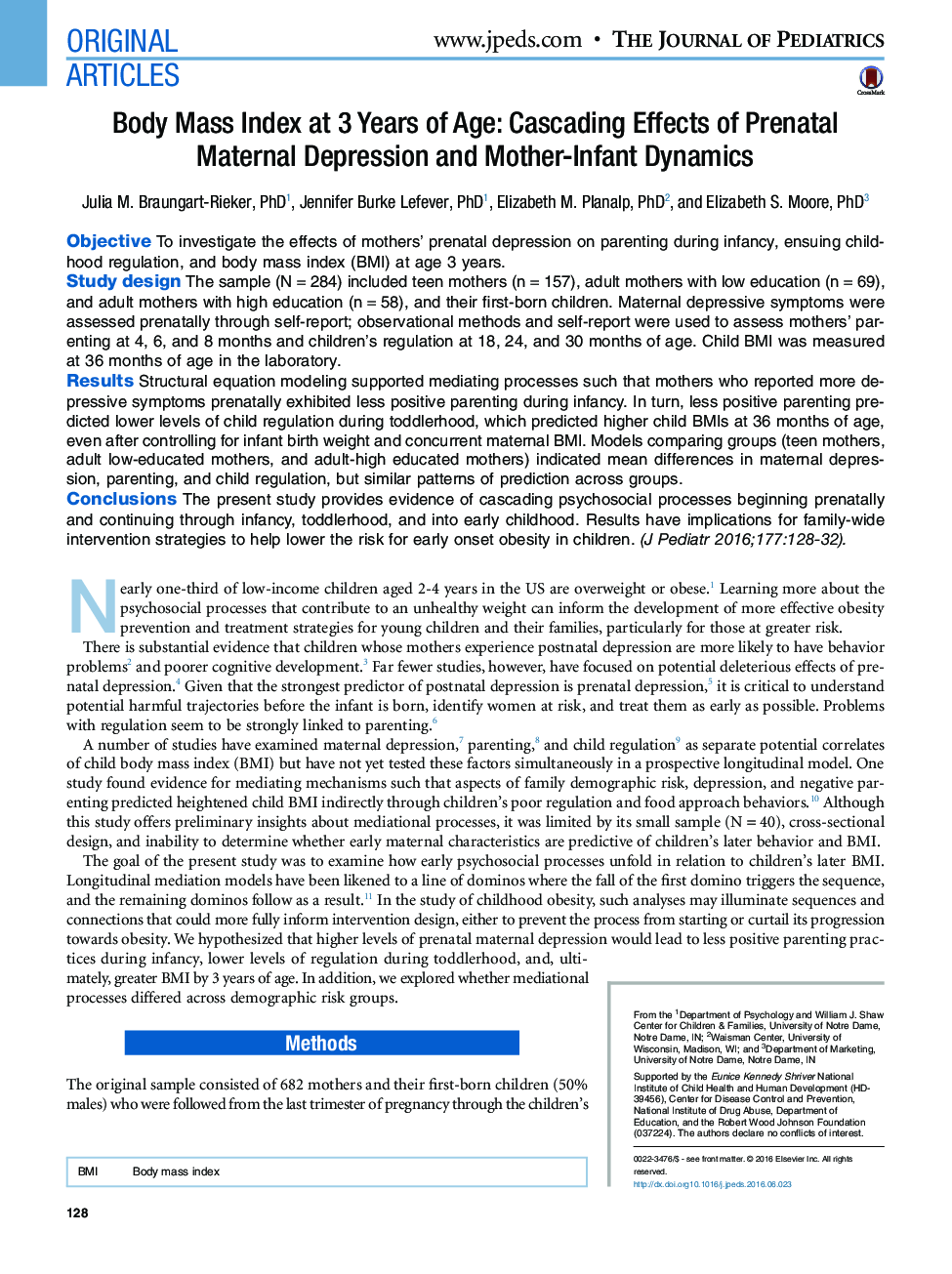| Article ID | Journal | Published Year | Pages | File Type |
|---|---|---|---|---|
| 6218689 | The Journal of Pediatrics | 2016 | 6 Pages |
ObjectiveTo investigate the effects of mothers' prenatal depression on parenting during infancy, ensuing childhood regulation, and body mass index (BMI) at age 3 years.Study designThe sample (Nâ=â284) included teen mothers (nâ=â157), adult mothers with low education (nâ=â69), and adult mothers with high education (nâ=â58), and their first-born children. Maternal depressive symptoms were assessed prenatally through self-report; observational methods and self-report were used to assess mothers' parenting at 4, 6, and 8 months and children's regulation at 18, 24, and 30 months of age. Child BMI was measured at 36 months of age in the laboratory.ResultsStructural equation modeling supported mediating processes such that mothers who reported more depressive symptoms prenatally exhibited less positive parenting during infancy. In turn, less positive parenting predicted lower levels of child regulation during toddlerhood, which predicted higher child BMIs at 36 months of age, even after controlling for infant birth weight and concurrent maternal BMI. Models comparing groups (teen mothers, adult low-educated mothers, and adult-high educated mothers) indicated mean differences in maternal depression, parenting, and child regulation, but similar patterns of prediction across groups.ConclusionsThe present study provides evidence of cascading psychosocial processes beginning prenatally and continuing through infancy, toddlerhood, and into early childhood. Results have implications for family-wide intervention strategies to help lower the risk for early onset obesity in children.
